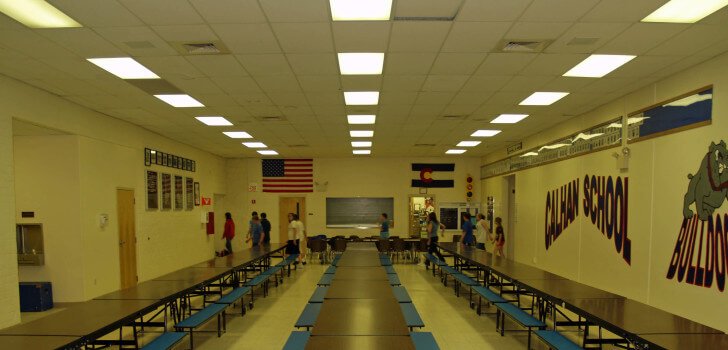A recent study has shown that schools might be able to help reduce obesity in young people by offering chilled water in their cafeterias. The study was led by NYU School of Medicine researcher Brian Elbel.
In his study, Elbel and his team tracked more than one million students in more than 1,200 schools for a period of five years. The study sought to determine the effects of installing inexpensive water dispensers that would provide cold and filtered water to students.
The study ultimately found that offering such water dispensers, which are known as “water jets” helped to curb obesity rates. The water jets function by chilling and injecting oxygen into ordinary tap water in order to provide students with a more refreshing beverage than a standard drinking fountain. By offering students this option, they are more likely to choose water over alternative beverages that might cause them to gain weight.
The water jets cost about $1,000 per unit. After a school installed a water jet unit, it was shown that students made fewer purchases of chocolate milk and other sugary drinks. A personal serving of chocolate milk contains about 160 calories, while a single cup of other sugary drinks contains roughly 200 calories.
In New York City, almost 40% of students are considered to be overweight or obese. The city’s public schools are not permitted to sell any sugar-sweetened beverages, except for low-fat chocolate milk. However, students can still consume other sugary beverages that they bring from home.
The researcher team wrote in their study, “Results from this study show an association between a relatively low-cost water availability intervention and decreased student weight. Milk purchases were explored as a potential mechanism.”
Overall, Elbel and his team found that schools with water jets in their cafeterias tended to have lower rates of overweight and obese students than schools that do not feature the water jets. Also, schools that installed the water jets during the study saw their rates of obesity drop during that time. In the end, schools with water jets had male students that weighed 0.9% less and female students that were 0.6% less to be overweight or obese.
Elbel said, “This study demonstrates that doing something as simple as providing free and readily available water to students may have positive impacts on their overall health, particularly weight management. Our findings suggest that this relatively low-cost intervention is, in fact, working.”
Based on the results of the study, it would be expected that more public schools will work towards obtaining water jets for their cafeterias in the near future.
Stay Connected